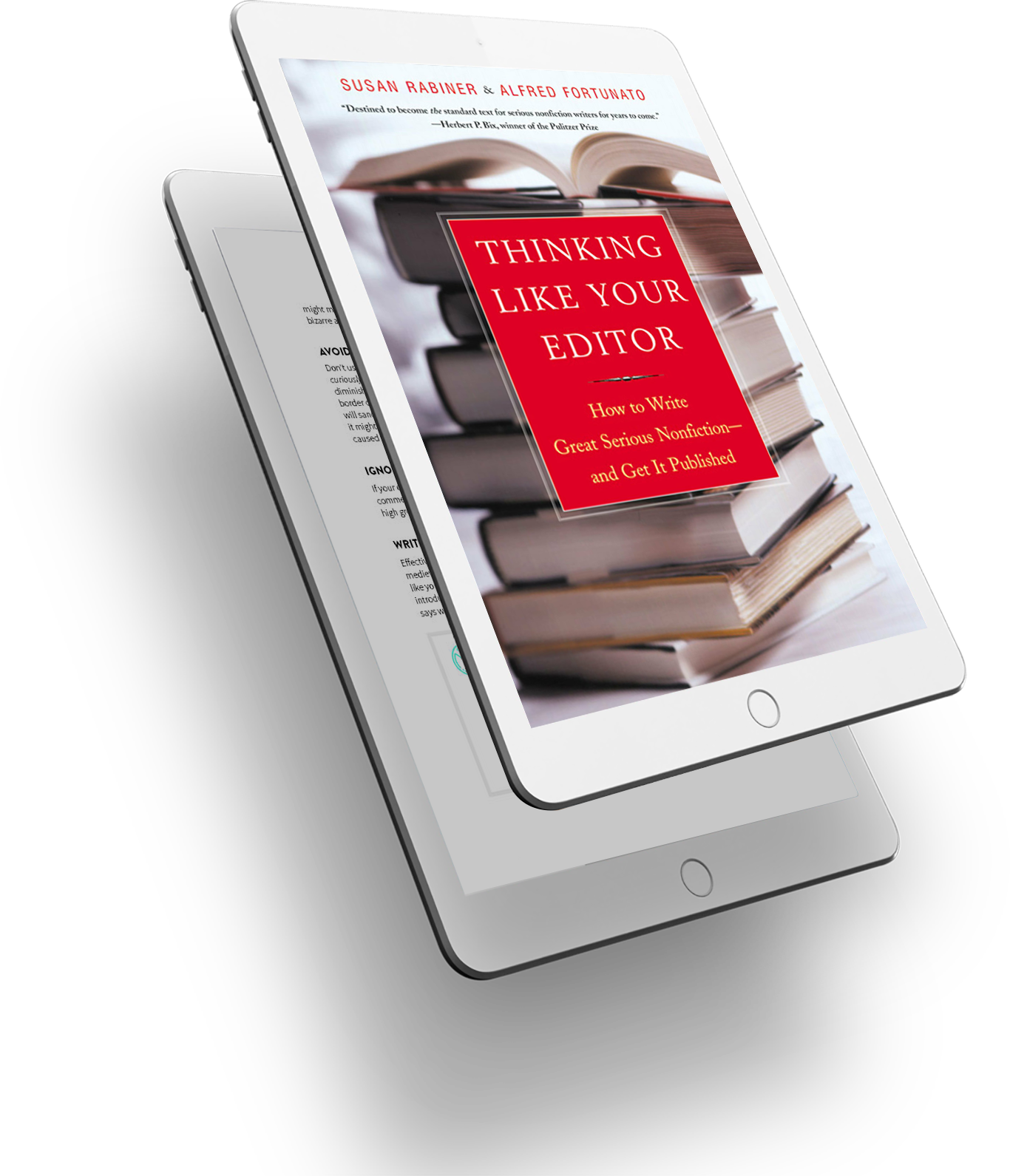
At work, we are all non-fiction writers—and it is our job to make our proposals, briefs, and memos tell a story, argue, and persuade.
Unfortunately, the more time we’ve spent as professionals, the more we’ve forgotten what it means to argue. In our attempts to be unbiased, we’ve become uninteresting. Or, on the opposite end of the spectrum, in our attempts to promote, we’ve allowed ourselves to distort. Neither extreme brings value. It’s time to re-learn the writing lessons we may have forgotten.
In this chapter by Susan Rabiner and Alfred Fortunato, the authors show you how to find the sweet spot for writing an argument that is credible and compelling. Drawing on experience as serious non-fiction editors and literary agents, the authors discuss the most common traps for highly educated authors, and explain how to:
Even though we see ourselves as executives, lawyers, analysists, and other professionals, we cannot forget that we are writers, too. Our value is in our judgment and insights and arguing our position is the chance to prove our worth. Start writing stronger data-driven arguments now. Download this chapter today.
Once you have the right argument, let WordRake help you find the right words. WordRake is editing software for Microsoft Word and Outlook that will give your first drafts the polish of three or four revisions. You’ll get better results in less time and be more persuasive. Download this chapter and try WordRake today!
Chapter reprinted with permission from W. W. Norton & Company. Originally published in Thinking Like Your Editor: How to Write Great Serious Nonfiction and Get It Published by Susan Rabiner and Alfred Fortunato. Copyright © 2003. Complete book available on Amazon.
Download this chapter from Thinking Like Your Editor today!